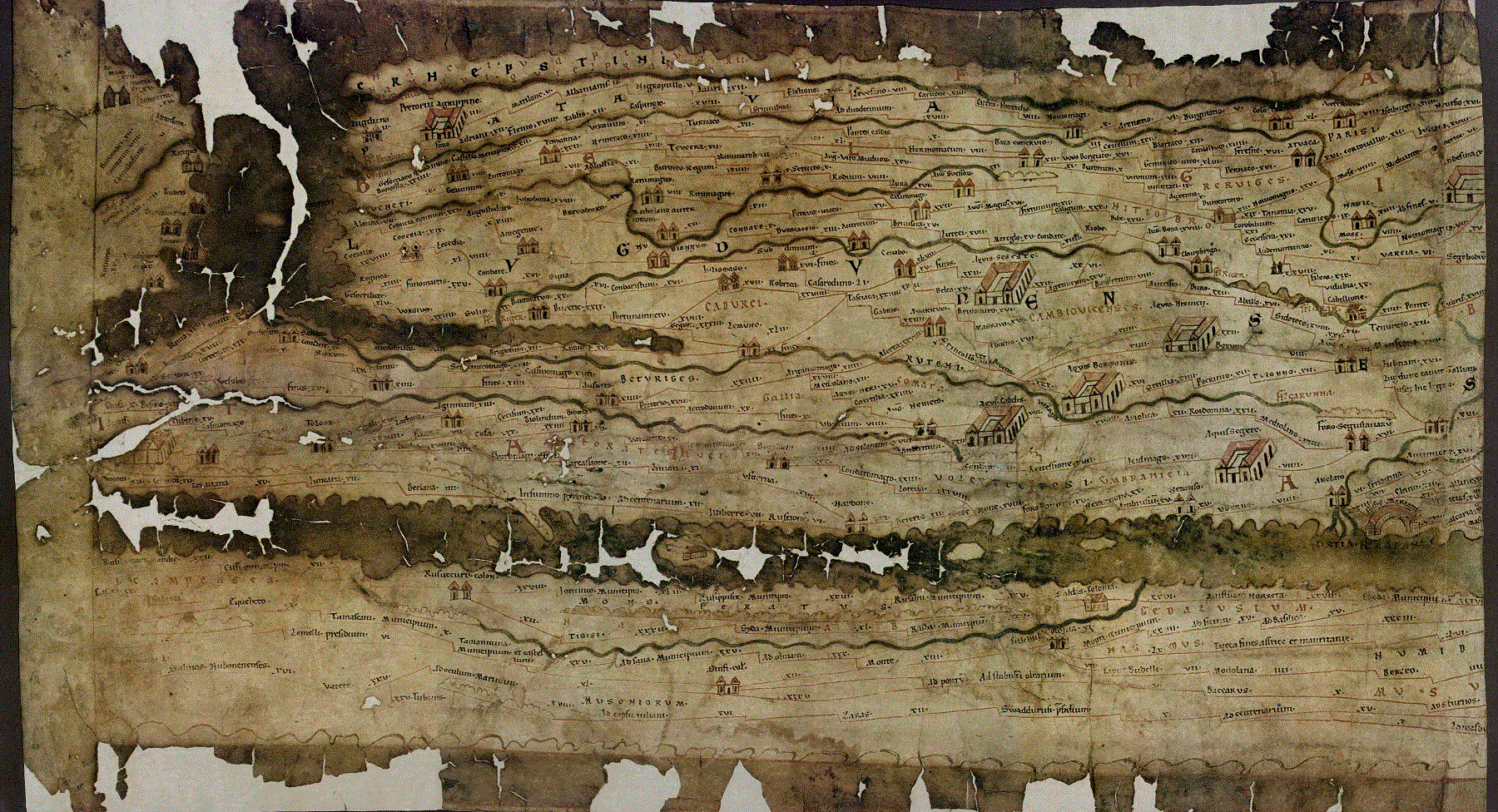Obviously the name cognac, meaning the eau-de-vie, is derived from the name of the city Cognac, the centre of the cognac-industry and the second largest city of the department Charente. But where does that name come from? Several explanations exist, two of them being the most important.One is that the name originates from the name Condate, a Roman settlement very near the presentday location of Cognac. Approximately where you now will find Merpins. Condate is a Celtic-Gallic word to describe the merging of two rivers.
The other explanation that is adopted says the word comes from Comnus, Connus or Connius, the name of a family that had some properties in the neighbourhood.
From around 1075-1100 the name Commiaco is seen on old maps. Also Conniaco and Cumniaco are seen (ca. 1080). Somewhat later: Compiniacum (1270) and not much later Conniavum.
A list of nams that are found on old maps or documents: Cunacco, Cunaccum, Coniacum, Compiniacum, Comnac, Cumnac, Comniaco, Conjaci, Comniaci, Comniacensis, Cunniaco, Cosnac, Cosniaco, Comniacum Castellum, Conacum, Campiniacum.
Around 1300-1400 the now known name Cognac comes into use. The ending -ac means as much as:’house of’ or ‘place of’ and is from the Gallic language where -aca (female) or -acus (male) is used to be placed after a proper name. So Coniacum would mean the house of Connius or the place of Connius.
In the year 1678 the name cognac is for the first time – as far as we now know – mentioned as a word meaning to designate the eau-de-vie. It was an ad in the London Gazette for the promotion of Conyack Brandy. How the name was spelled precisely is not exactly known. The mention of the ad is quoted by different writers with the following alternative spellings: coniack brandy (Nicholas Faith), conyack brandy (Wina Born), cogniacke brandy (Fred McMillen), cogniack (cognac-expert).
The Cognac Expert blog also mentiones Lewes Roberts who presumably talked about a wine that is called Rotchell or Cogniacke in 1638.


Yes, that could be interpreted as a contradiction. But I see it like this: to say that you bought some cognac is not the same as you bought eau-de-vie de Cognac (from the city of Cognac). You are still not just calling it cognac.
It is written above “In the year 1678 the name cognac is for the first time – as far as we now know – mentioned as a word meaning to designate the eau-de-vie.”
This seems to be in contradiction to “1625, 7 juli – First known export of ‘eau-de-vie de Cognac’ via Tonnay-Charente” as stated on “Cognac – a chronological overview on the cognac-ton website”.
Is is possible to clarify this?
Otherwise: thanks for interesting information